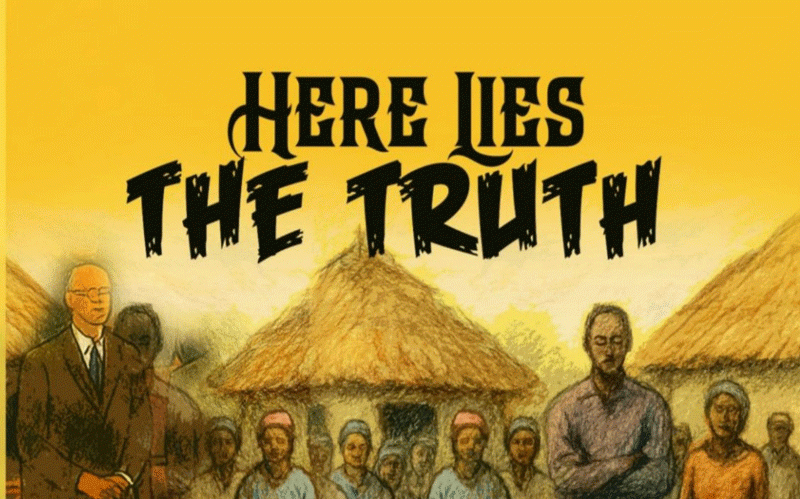
Reviewer: Philip Chidavaenzi
Title: Here Lies the Truth
Author: Godwin Sweto
Publisher: Royalty Books (2025)
William Shakespeare declared in the play, Julius Caesar, through the character of that the good that men do often outlive them, while the bad is interred together with their mortal remains. This, however, can be ground for contestation because the ways in which different individuals view someone is hardly ever the same.
In Here Lies the Truth, a novel by South Africa-based Zimbabwean author, Godwin Sweto, we see this reality emerging in the wake of the untimely and suspicious death of the protagonist, Munya, who, even in death, continues to wield significant influence over those left behind.
The story is centred on Munya, whose mysterious death captures the attention of nearly everyone he had associated with in one way or the other. As an influential mining executive in South Africa, his death draws nationwide curiosity. The investigation into the murder, which is the crux of the story, would eventually unearth secrets that will leave the reader gasping with shock.
Although this novel is a debut, Sweto is a skilled writer. His decision to adopt a shared narrative style, where different characters share in the telling of Munya’s story from their perspective, was a winner. Here, the reader gets to appreciate that no one is ever fully known in their totality, because often, there is no consistency in all perspectives.
- July Moyo’s empire crumbles
- Inside the minds of serial killers
- History repeats itself
- Much ado about nothing
Keep Reading
For instance, Jacob Mboko, Munya’s uncle, remembers a nephew who “helped make this community better” (pp16) by send children to school, sinking boreholes and bringing in experts to teach villagers on how to improve their crops. Munya’s maternal uncle, Comrade Shaka Muchero, however has a bone to chew with Munya because “as he made his millions in South Africa, there was never a thought about the plight of the people who gave birth to, and took care of, his mother in her early days” (pp22). The maternal aunt who raised him following his mother’s death, recalls a young man who “was as hard working as he was respectful” and “took care of our goats and all what mattered to our livelihoods” (pp26).
The reader gets the impression that Munya’s background enabled him to break social barriers and was therefore able to associate with people from all walks of life, many of whom also give eulogies at his funeral. Sekuru Shangu, the cobbler, for instance, says he was “more than just a fixer of shoes” and, for that, reason, he had “a special bond” with Munya that often saw them spending a lot of time together and Munya would open up to him about deep things he never disclosed to anyone else.
On the other hand, Alice Mushipe, who describes herself as “a friend”, rants that Munya, described as a good friend of many years, was “a master of deception” who let her down when she needed him the most after she was diagnosed of cervical cancer. She claims the man celebrated for his charity works opted to enjoy himself at a business cocktail instead of coming to pick her up from the doctor’s surgery.
The book addresses a wide range of themes that the reader will certainly identify with. These include death, love, betrayal, family, crime and murder, among many others. Sweto, through Munya and his work experiences, also explores the underbelly of the corporate world where things are not always as they seem on the glittering surface. The underbelly is often slimy.
As investigations into the story continues, they lead to an explosive climax with the realisation that despite being married, Munya was also living with another woman. This is a fast -paced read whose twists and turns will keep the reader glued to the book right to the end.










